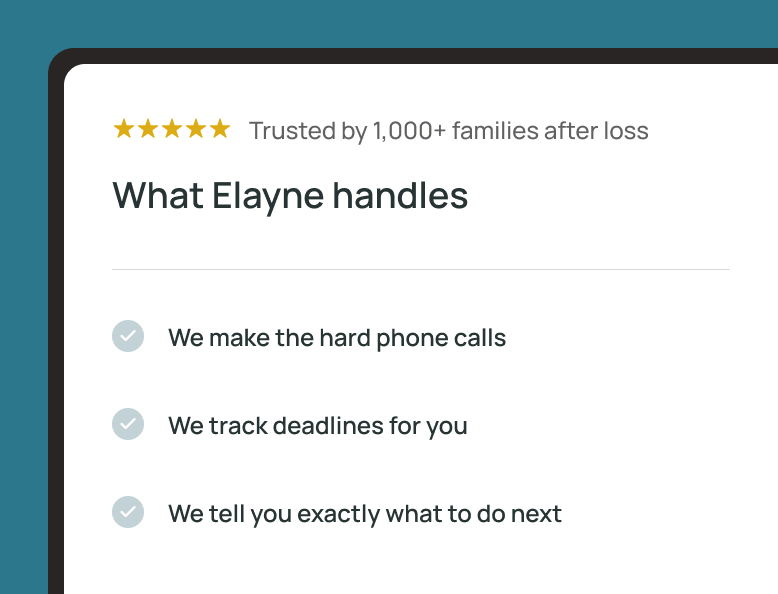In the wake of personal tragedies, individuals often find themselves grappling with profound grief, a journey that doesn't adhere to a set timeline. The story of Tom Barklage, a key account manager for a Johnson & Johnson pharmaceutical subsidiary, brings this reality into sharp focus.
After the sudden loss of his son Blake to an undiagnosed heart infection, Barklage reached out to his employer, seeking an extension of the standard five-day bereavement leave. This plea led Johnson & Johnson to extend its bereavement leave to 30 days, signaling a significant shift towards recognizing the depth and complexity of grief.
{{blog-cta-admin}}
Corporate America's Evolving Bereavement Policies
Across the United States, companies like American Express and JPMorgan Chase are reevaluating their bereavement leave policies, shifting towards more generous and flexible options.
This year, American Express enhanced its policy to grant U.S. employees 20 days leave for the loss of a spouse, partner, or child, up from the previous five days. Similarly, JPMorgan Chase adopted a 20-day leave policy, aligning with its competitors, Goldman Sachs Group Inc. and Bank of America Corp.
This trend reflects a growing acknowledgment of the need for time to grieve, spurred by employee feedback, regulatory pressures, and a competitive labor market.
The Start of a Movement Across Corporate America
Adding to this movement, other companies are beginning to recognize the importance of bereavement leave not just as a benefit but as a necessity for mental health and well-being. This shift is part of a broader reevaluation of work-life balance and employee support mechanisms in the post-pandemic world.
Organizations are increasingly aware that providing substantial bereavement leave is essential for fostering a compassionate workplace culture that values the employee as a whole person. By doing so, they not only improve the individual's ability to cope with loss but also enhance team cohesion and loyalty, demonstrating a commitment to their workforce's emotional and psychological needs.
This evolving perspective is setting a new standard for corporate empathy, with companies acknowledging that support during times of loss is integral to the holistic well-being of their employees.
The Case for Expanding Bereavement Leave
The story of Tom Barklage underscores the inadequacy of standard bereavement leave policies. Grief is a process, and the ability to return to full functioning varies greatly among individuals. Experts like Jeff Gorter, Vice President of Clinical Crisis Response at R3 Continuum, advocate for greater flexibility in bereavement leave policies, emphasizing that "grief is a process."
Research suggests that a more extended period, such as 14 days, might be necessary to accommodate the physical and mental toll of loss. Building on this, there's a growing acknowledgment within the corporate sector that the complexities of grief require a more nuanced approach to time off for bereavement.
Traditional policies often fail to consider the diversity of employee experiences and the multifaceted nature of grief, which can involve not just emotional turmoil but also logistical and financial challenges.
Expanding bereavement leave policies to allow for longer periods of absence, coupled with support services that address these challenges, recognizes the humanity of employees and their needs during profoundly difficult times.
This evolution towards more compassionate policies reflects an understanding that supporting employees through grief is not just beneficial for the individuals affected but enhances the overall workplace culture, promoting resilience, empathy, and a sense of community.
Elayne as the Answer to a Growing Need
In response to the evolving needs of the workforce, services like Elayne emerge as vital components of employee benefits packages, offering comprehensive support for pre- and post-death affairs and addressing the full spectrum of employee wellness.
By integrating such services, companies can honor diverse cultural grieving practices and provide support through all life stages, enhancing workplace compassion and understanding.
The introduction of Elayne represents a pivotal shift towards acknowledging the complexity of grief and the necessity for systemic support within the corporate structure. It embodies the understanding that bereavement support transcends mere time off; it encompasses emotional, legal, and financial guidance that employees may need during one of life's most challenging moments.
This comprehensive approach signifies a progressive move towards addressing the multifaceted aspects of grief, thereby fostering a more empathetic and supportive workplace environment.
By acknowledging and addressing these needs, companies can ensure that employees feel valued and supported, not just in their roles within the organization but as individuals navigating the intricacies of life and loss.
Real-Life Stories and Calls to Action
Similar to Barklage's experience, many employees face challenges with current bereavement policies. The integration of services like Elayne could offer significant relief and support during these difficult times.
HR executives and company leaders are called upon to recognize the benefits of adopting comprehensive end-of-life planning services, leveraging the positive impact evidenced by companies like Johnson & Johnson.
Moving Toward a Future of Workplace Empathy and Support
The shift in corporate bereavement policies and the integration of comprehensive end-of-life planning services like Elayne signal a broader movement towards workplace empathy. This transformation reflects a growing recognition of the need to support employees through all life's stages, including its end.
As companies continue to evolve their policies, they not only respond to the immediate needs of their workforce but also lay the groundwork for a more compassionate and understanding corporate culture.
This future-oriented approach to employee wellness underscores the importance of holistic support systems that truly cater to the full spectrum of employee needs—from the joyous to the sorrowful.
{{blog-cta-admin}}
A Visionary Approach to Corporate Compassion
The journey towards redefining workplace compassion through more empathetic bereavement policies and comprehensive support services is both a challenge and an opportunity for corporations.
By embracing this visionary approach, businesses can foster an environment of understanding and support that extends beyond the workplace. In doing so, they not only enhance the well-being of their employees but also set a new standard for corporate responsibility and empathy.
As we look to the future, the integration of services like Elayne into employee benefits packages stands as a testament to the evolving priorities of the corporate world, prioritizing human connection and compassion in the face of loss.












































